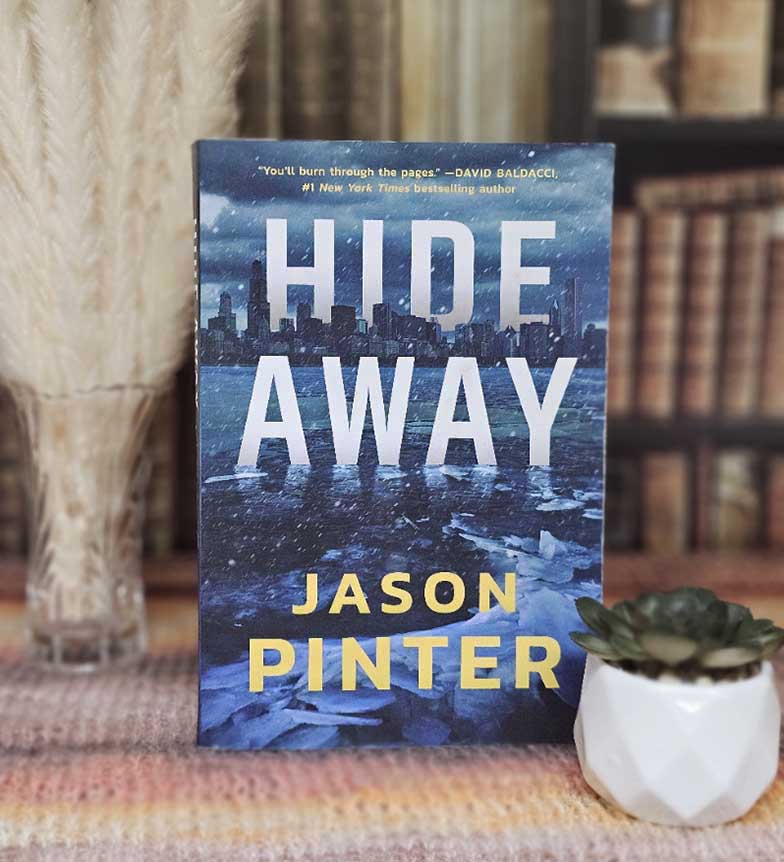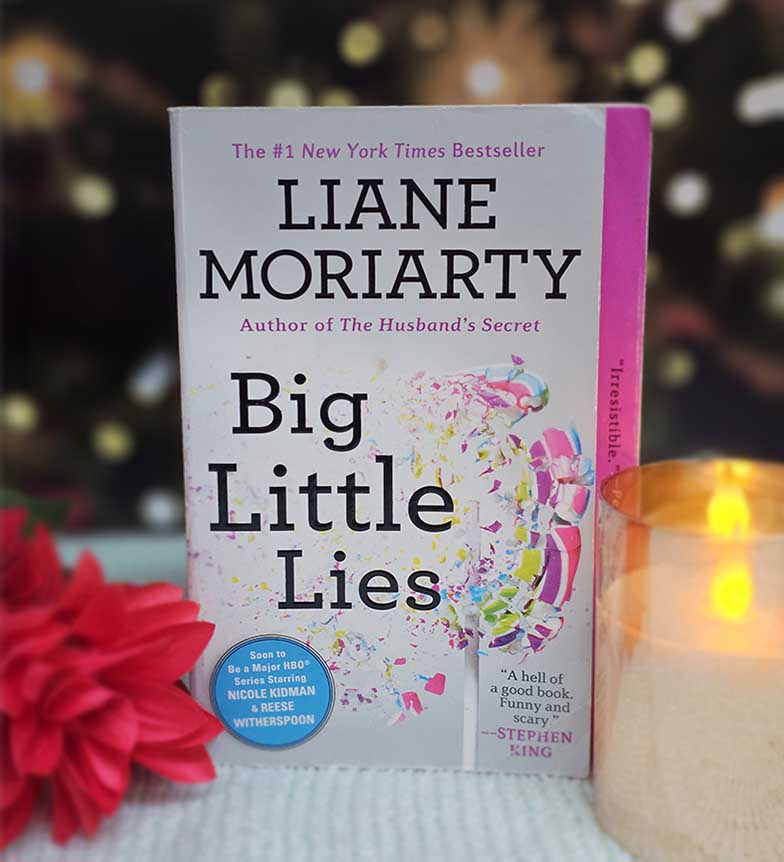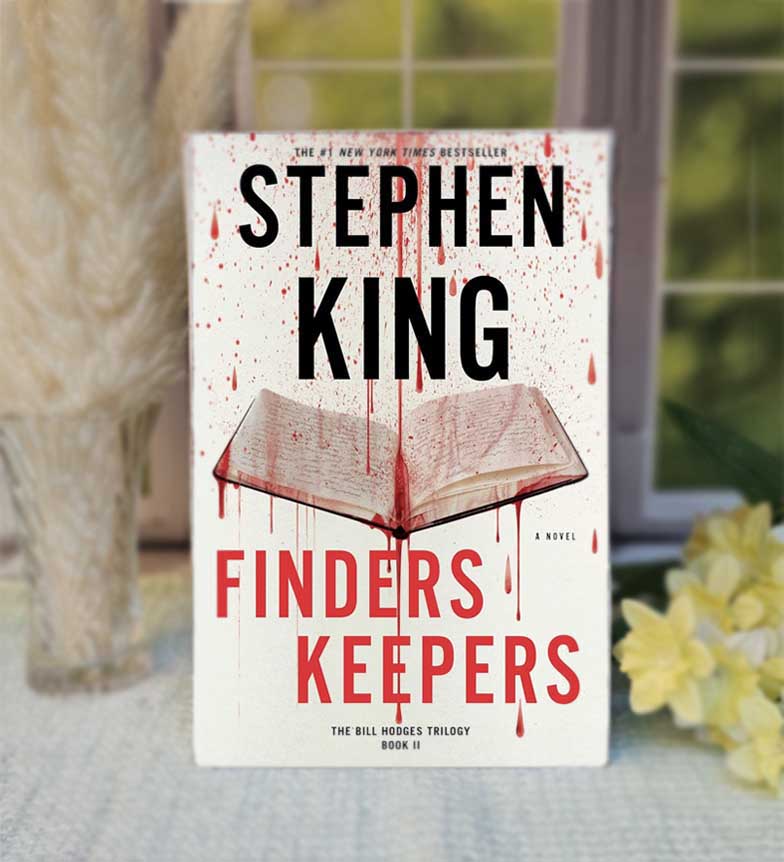
Hide Away
by Jason Pinter
A gripping thriller about a woman living in witness protection who must confront her past when her carefully constructed new life begins to unravel. Rachel Marin's secrets threaten to destroy everything she's built to protect her children.
Spoiler Warning
This review may contain spoilers. Read at your own discretion if you haven't finished the book yet.
When Your Past Refuses to Stay Buried
Jason Pinter's Hide Away is the kind of thriller that grabs you by the throat on page one and doesn't let go until you've raced through to the final, breathless conclusion. This is a book that understands what makes suspense work: not just external danger, but the internal conflict of a protagonist forced to choose between safety and truth, between protecting her children and confronting the past that made that protection necessary.
Rachel Marin is living the suburban dream in a small Pennsylvania town—soccer mom, PTA volunteer, the kind of normal that blends seamlessly into the background. But Rachel Marin isn't real. She's a carefully constructed identity, a witness protection cover that's kept her and her two children safe for five years. And now, that safety is crumbling.
The Architecture of Identity
What makes Hide Away exceptional is how Pinter uses the witness protection premise to explore deeper questions about identity and authenticity. Rachel has become so good at being Rachel that sometimes she almost forgets who she was before. Almost. Because the past has a way of clinging to you, no matter how many new names you take or how many miles you put between yourself and your old life.
The novel opens with Rachel's carefully controlled world beginning to crack. Small things at first—a car that seems to be following her, a stranger asking too many questions, a feeling she can't quite shake that someone is watching. Pinter masterfully builds paranoia, making us question whether Rachel's fears are justified or if she's so conditioned to see threats that she's creating them where none exist.
The genius of the setup is that Rachel can't go to the police. She can't tell anyone who she really is or why she's in hiding. She's trapped by the very system designed to protect her, unable to seek help without potentially exposing herself. This isolation amplifies every threat and makes every decision fraught with impossible stakes.
A Mother's Calculus
At the heart of this thriller is a profound exploration of motherhood and the lengths a parent will go to protect their children. Rachel's entire life is built around keeping her kids safe. Every choice, every interaction, every moment of normalcy is part of an elaborate performance designed to give them the childhood their mother's past tried to steal.
Pinter doesn't romanticize this. He shows the cost—the loneliness of having no real friends, the exhaustion of constant vigilance, the pain of watching your children grow up thinking the life you've given them is real when it's all built on necessity and lies. Rachel can't tell her kids the truth, can't share the burden, can't even allow herself to fully relax into the mother role because part of her is always on guard.
The emotional core of the novel is Rachel's internal conflict: how much danger can she tolerate before she has to act? At what point does staying hidden become more dangerous than confronting the threat? And what happens when her children start asking questions she can't answer without unraveling everything?
The Mechanics of Suspense
Pinter is a master craftsman when it comes to building and maintaining tension. The pacing is relentless—each chapter ending with a new revelation or threat that propels you into the next. But he's also smart enough to vary the rhythm, giving readers moments to breathe and dig deeper into character before ramping up the danger again.
The plot construction is intricate without being convoluted. Pinter layers mysteries within mysteries: Who is watching Rachel? How did they find her? What do they want? But beneath these external questions are deeper ones: What did Rachel witness? Who was she before? What cost has this life exacted from her?
The reveals are expertly timed. Pinter knows when to answer questions and when to raise new ones. Each revelation changes our understanding of what's at stake and who Rachel really is. The backstory emerges organically through flashbacks and memories, never feeling like information dumps but rather essential pieces of a puzzle we're desperate to complete.
Character Depth in a Genre Framework
While Hide Away operates firmly within thriller conventions, Pinter elevates the material through genuine character work. Rachel isn't just a badass mom protecting her kids—she's a fully realized person with regrets, fears, weaknesses, and a complicated relationship with her own capacity for violence and deception.
The supporting characters are equally well-drawn. Rachel's children feel like real kids, not plot devices. Her neighbors and acquaintances in her new town are rendered with enough specificity that we understand why she's torn between the life she's built and the life she had to leave behind. Even the antagonists are given dimension and motivation beyond simple villainy.
The relationship dynamics are particularly strong. Pinter explores how isolation affects Rachel's ability to connect, how the performance of normalcy creates distance even from the people she loves most. There's a poignant thread about authenticity—how you can lose yourself in a cover identity, how the person you pretend to be can start to feel more real than the person you were.
Moral Complexity and Gray Areas
One of the novel's strengths is its refusal to offer easy moral answers. Rachel is neither purely victim nor hero—she's someone who made choices, some of them questionable, and is now living with the consequences. The book doesn't ask us to condone everything she's done but to understand the impossible situations that led to those decisions.
Pinter explores the ethics of witness protection and the criminal justice system. What happens to the people who help prosecute major crimes? How much does society owe them? What about their families, who didn't choose this life but are forced to live it anyway? The novel raises these questions thoughtfully without getting preachy.
There's also a fascinating examination of vigilante justice versus systemic justice. When the system fails you, when official protection proves insufficient, what are your options? Rachel faces this dilemma repeatedly, and Pinter doesn't shy away from the messy reality that sometimes there are no good choices, only less bad ones.
The Thriller Formula Done Right
Hide Away succeeds because it takes familiar thriller elements and executes them with precision and intelligence. Yes, there's a woman in danger. Yes, there's a conspiracy. Yes, there are action sequences and narrow escapes. But Pinter grounds everything in emotional truth and character logic.
The action scenes are tense and well-choreographed without descending into Hollywood absurdity. Rachel is capable and resourceful, but she's not invincible. She gets hurt, makes mistakes, suffers real consequences for her decisions. The stakes feel genuine because Pinter has invested in making us care about these characters beyond their function in the plot.
The mystery elements are equally satisfying. The clues are there for attentive readers, but Pinter is skilled enough to misdirect without cheating. The solution to Rachel's predicament feels both surprising and inevitable—the hallmark of excellent mystery construction.
Themes of Home and Belonging
Beneath the thriller surface, Hide Away is deeply concerned with questions of home and belonging. Where is home when you can't go back to the place you're from? How do you build community when you can't be honest about who you are? What does it mean to belong when your very existence is a performance?
Rachel's journey is partly about finding a way to be authentic within the constraints of her situation. She can't be who she was, but she can choose how much of herself to bring to who she's become. The novel suggests that home isn't a place but a decision—the choice to stop running, to stand your ground, to fight for the life you want rather than the life you've been given.
Writing Craft and Style
Pinter's prose is clean and propulsive—he doesn't waste words but also doesn't sacrifice style for speed. The writing is particular strong in Rachel's point of view, capturing her hypervigilance and constant threat assessment without making it feel mechanical. We experience the world as she does: every stranger is a potential danger, every unexpected event a possible breach.
The dialogue is sharp and naturalistic, revealing character through speech patterns and what's left unsaid. Pinter is especially good at capturing the way Rachel has to code-switch between her real thoughts and her public performance, the constant mental translation from truth to cover story.
The structure is smart, intercutting present danger with backstory reveals, maintaining forward momentum while gradually filling in the picture of how Rachel ended up here. The pacing never lags—even in quieter moments, there's an undercurrent of tension that keeps pages turning.
Minor Quibbles
If there's a criticism, it's that some thriller conventions feel a bit too convenient. A few coincidences stretch credibility slightly, and some of the antagonists' capabilities sometimes feel more plot-driven than character-driven. Additionally, readers who prefer subtlety might find some of the danger escalation predictable.
The ending, while satisfying, wraps up perhaps a touch too neatly for a story that's been so good at exploring moral complexity. A bit more ambiguity in the resolution might have strengthened the thematic resonance.
Why This Deserves Five Stars
Hide Away earns its five stars by being exactly what a thriller should be: gripping, intelligent, emotionally resonant, and impossible to put down. It's the kind of book that makes you miss your subway stop, skip lunch, and stay up way too late because you absolutely have to know what happens next.
But it's more than just plot mechanics and page-turning momentum. Pinter has created a protagonist who feels real and complex, whose choices matter and whose pain resonates. The exploration of motherhood, identity, and the cost of safety elevates this above standard thriller fare.
This is also a book that understands its genre while transcending it. It delivers all the suspense and action thriller readers crave while also offering genuine character development and thematic depth. You finish it both satisfied by the plot resolution and moved by the emotional journey.
Final Thoughts
Hide Away is proof that genre fiction at its best can be both entertaining and meaningful. Jason Pinter has crafted a thriller that works on every level—as a mystery, as a character study, as an exploration of family and sacrifice, and as a damn good read that respects its audience's intelligence.
If you're looking for a book that will keep you up all night, that will make your heart race and your mind engage, that will make you question what you'd do in impossible circumstances—this is it. It's the kind of thriller that reminds you why you love the genre, that makes you want to press it into the hands of every reader you know.
Rachel Marin's story will stay with you long after you've finished the last page. You'll think about identity and authenticity, about the performance of normalcy and the weight of secrets. You'll wonder about the people around you and the lives they might be hiding. And you'll be very, very grateful that Jason Pinter has more books to read, because finding a thriller this good is a rare and beautiful thing.
Absolutely recommended. Clear your schedule before you start this one—you won't be able to stop.
My Notes & Takeaways
Key Themes & Quotes
On Reinvention and Identity:
"You can change your name, your hair, your entire life, but you can't change who you are at your core."
"Rachel Marin didn't exist five years ago. The woman she was before—that person had to die so her children could live."
On Motherhood and Protection:
"There is nothing—nothing—a mother won't do to protect her children. No line she won't cross, no law she won't break."
"Every bedtime story, every school drop-off, every normal moment is a victory when you know what you've left behind."
On Secrets and Truth:
"The problem with building a life on lies is that eventually, someone starts asking questions."
"One thread. That's all it takes. Pull one thread and the whole tapestry unravels."
On Trust and Paranoia:
"When you've lived in hiding, everyone is a potential threat. The friendly neighbor. The concerned teacher. Even the person in the mirror."
"Trust is a luxury afforded to people who don't know how quickly safety can disappear."
On Justice vs. Safety:
"Sometimes doing the right thing and keeping your family safe are two different things. And you have to choose."
"The question isn't whether you can live with what you've done. It's whether you can live with yourself if you don't do it."
You Might Also Like

Close Your Eyes
by Iris Johansen, Roy Johansen
The first book in the Kendra Michaels series. A blind music therapist with extraordinary perceptive abilities is drawn into a dangerous investigation when her ex-lover, an FBI agent, asks for her help tracking a serial killer.

Big Little Lies
by Liane Moriarty
Liane Moriarty's addictive mystery about three women in an affluent Australian beach community whose seemingly perfect lives unravel over a school year, culminating in murder at the kindergarten trivia night. Smart, funny, and surprisingly dark exploration of marriage, motherhood, and secrets.

Finders Keepers
by Stephen King
A stolen collection of notebooks containing an iconic author's unpublished work becomes the obsession of multiple people across decades, with deadly consequences.